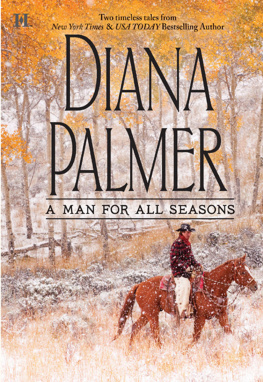This edition is published by PICKLE PARTNERS PUBLISHINGwww.picklepartnerspublishing.com
To join our mailing list for new titles or for issues with our books picklepublishing@gmail.com
Or on Facebook
Text originally published in 1932 under the same title.
Pickle Partners Publishing 2015, all rights reserved. No part of this publication may be reproduced, stored in a retrieval system or transmitted by any means, electrical, mechanical or otherwise without the written permission of the copyright holder.
Publishers Note
Although in most cases we have retained the Authors original spelling and grammar to authentically reproduce the work of the Author and the original intent of such material, some additional notes and clarifications have been added for the modern readers benefit.
We have also made every effort to include all maps and illustrations of the original edition the limitations of formatting do not allow of including larger maps, we will upload as many of these maps as possible.
A TEXAS RANGER AND FRONTIERSMAN: THE DAYS OF BUCK BARRY IN TEXAS 1845-1906
Edited by
JAMES K. GREER
FOREWORD
A GENERATION ago the historian, George P. Garrison, said that, the greatness of Texas lies, not so much in its vast extent of territory and its abundance of natural resources, as in the character of its people, which is a compositewith the good predominantof qualities peculiar to many lands, whence the citizenship of the State has been recruited.
Even before the fall of the Alamo and the Battle of San Jacinto, pioneers of Texas, led by the immortal statesman, diplomat, and greatest of impresarios, Stephen F. Austin, dreamed of a great future for the southwest. These same pioneers blazed the way for the Lone Star States accomplishment with daring, faith, and resolute labor. Perhaps it was their vision which gave them strength to carry on when less resolute men would have given up because of the apparently overwhelming odds.
One man who was attracted by the gleaming star of the southwest and who answered its appeal before the Republic of Texas had ceased to use its original flag, was James Buckner Barry of North Carolina, a descendant of men who had fought for independence in both hemispheres. He was to serve in three of her armies and do such deeds as become traditions. Not quite early enough to meet Travis and Bowie, he knew Houston and Johnston, Hays and the McCullochs, Throckmorton and Mills, Chief Placidio of the friendly Tonkawas and Iron Jacket of the raiding Comanches. As a Ranger with Hays he met the Mexican, as a sheriff he encountered outlaws, as a frontiersman he fought Indians, as a stockfarmer he was the Nemesis of horse thieves, as a ranchman he experienced the annoyance of fence cutting, and as a Texan and southerner he saw four years of the most gruelling, the most undesirable type of military service. On the other hand, he served as a faithful county civil officer, legislator, and village postmaster. Nor did life in the great period of adventure before, during, and after the Civil War prevent his frequent attendance on the services of the circuit rider and the occasional camp meeting in his section of the State. No writer of western stories has created better fiction of adventure than this quiet, unassuming, early settler lived, although he does not meticulously detail it. But, perhaps, by its very simplicitythis commendable restrainthis story gains in force.
Following the Mexican War, settlers flocked to Texas in even greater numbers than before; and their rapidly moving line of settlement westward angered the Indian, who slipped into the settlements, made his attack with arms and torchat times kidnaping women and childrenherded together the horses of his victim as booty, and rode rapidly on his return by trails he well knew. Unorganized, the frontiersmen had to fend off the raiders as best they could, gather volunteer bands and pursue at once. Out of these experiences grew such organizations as the Texas Rangers and the Texas Frontier Regiment of which last Wootens History of Texas records that, the service rendered is said to have been the most efficient ever given the frontier [of Texas], and that during the two years of its service more stolen property was recaptured and more marauding Indians killed than were recaptured and killed by the United States troops from Annexation to 1861. The same source states that:
The members of this regiment shared few of the honors of the war, but the dangers which they encountered were exceeded by few others, and the numerous unmarked graves which excite the curiosity of the settlers in the section of country covered by them, attest many a bloody encounter with hostile savages. No flowers are strewn upon their graves on Decoration Day, no monuments are erected to their memory, but the vast extent of country then depending upon them solely for protection suffered none of the horrors and few of the privations of war; and its brave defenders are still held in grateful remembrance by the early settlers upon the Texas Frontier.
Barry and his wife owned slaves and these, together with his stock and lands, had enabled him to get on the road to prosperity as a prominent frontier stockfarmer before the war. But the losses occasioned by Indian raids, by the Civil War, and by enforced neglect of his private interests while in public service were heavier than he could afterwards overcome. But apparently he was happy. Perhaps his life was a good example of the maxims on service and happiness.
The old lure of the frontier lives still in the popular craving for its story. Despite the successes of hundreds of writers of western fiction, the most satisfactory accounts are those of the frontiersmen themselves. Simple and modest though these narratives often are, they bear the stamp of genuine experience; we can never have too many of them.
Colonel Barry himself has stated how he came to write his reminiscences. He had retained his military papers and military post order book; his diary, covering several years previous to the middle of 1862, and his official and personal correspondence. As he wrote he was thus enabled to refer to these data. The task was interrupted by blindness a few years before his death, and although relatives planned to secure a stenographer to take the remainder of his narrative, it was never done.
When, in December, 1906, he died at his home in Walnut Springs, Texas, he left these papers to his son, Mr. Kossuth Barry. The son presented them to the Archives of the University of Texas in February, 1927.
As Barry was a man of action rather than a student of composition and never set down his experiences with publication in mind, the editor has made certain minor corrections in the reminiscences that the author would have no doubt made had the opportunity of proof reading been his. Several pages of the reminiscences irrelevant to the narrative and of no permanent historical value have been eliminated; for instance, Barrys views on natural history. A few explanatory statements, taken largely from the diary, which runs concurrently from 1855 to 1862, inclusive, and is a repetition of much of the reminiscences and was no doubt frequently consulted by the narrator, have been added. Care was taken, however, not to modify the style of the narrator nor his meaning. The chief function of the editor has been to complete the story, using the Barry papers not only as a source but weaving them together so that they complete the tale. Only the central thread of the narrative was extended so that much interesting material has been discarded. But this is in keeping with Barrys method, and is as he would have had it, since he was unobtrusive in manner and had the military disinclination toward garrulity. Long hours in the saddle on the trail of the wary Comanche was conducive to the development of reticence and terseness rather than volubility. It was deemed proper to add a casual epilogue.






